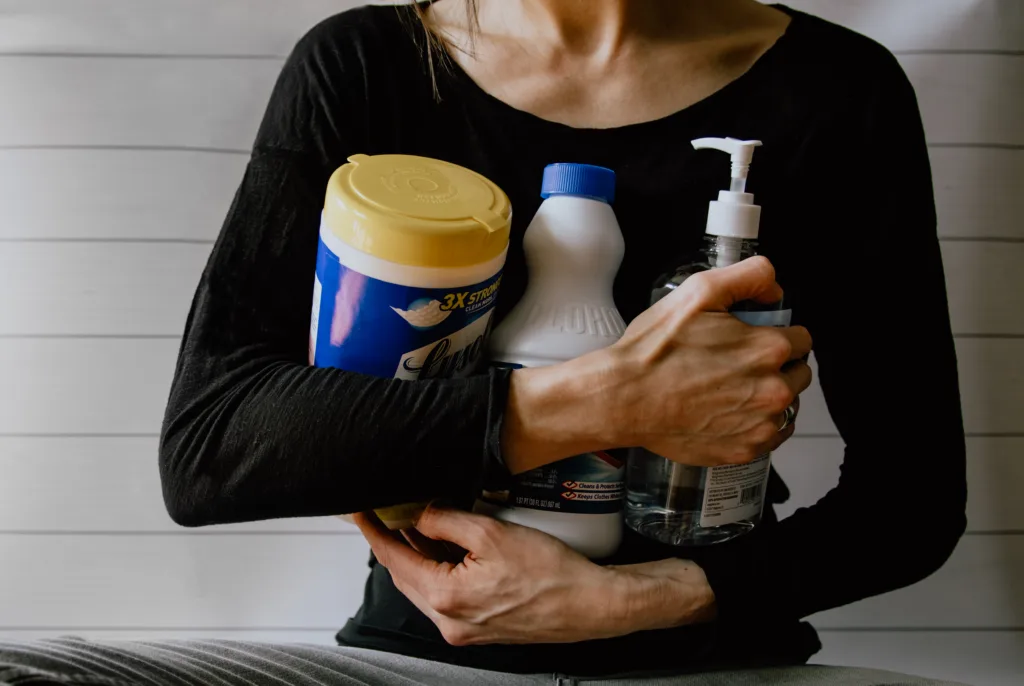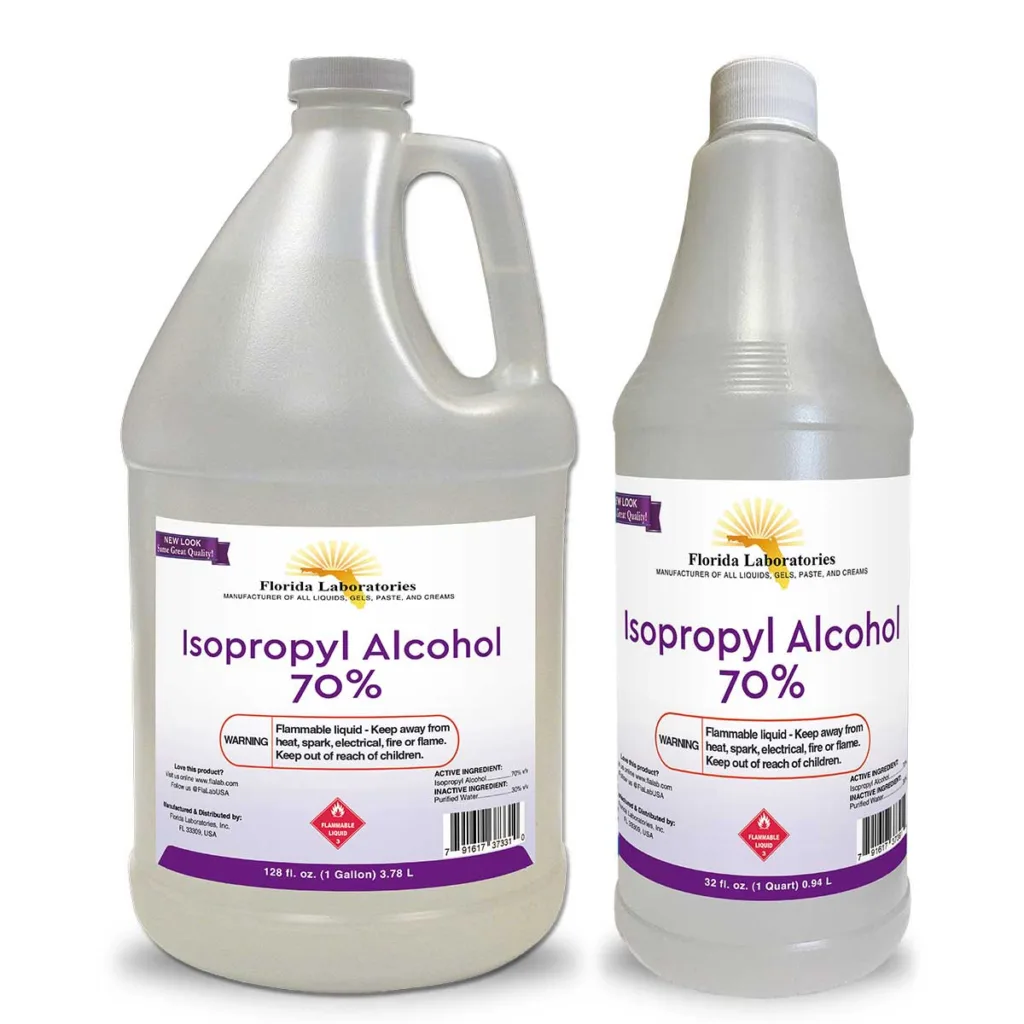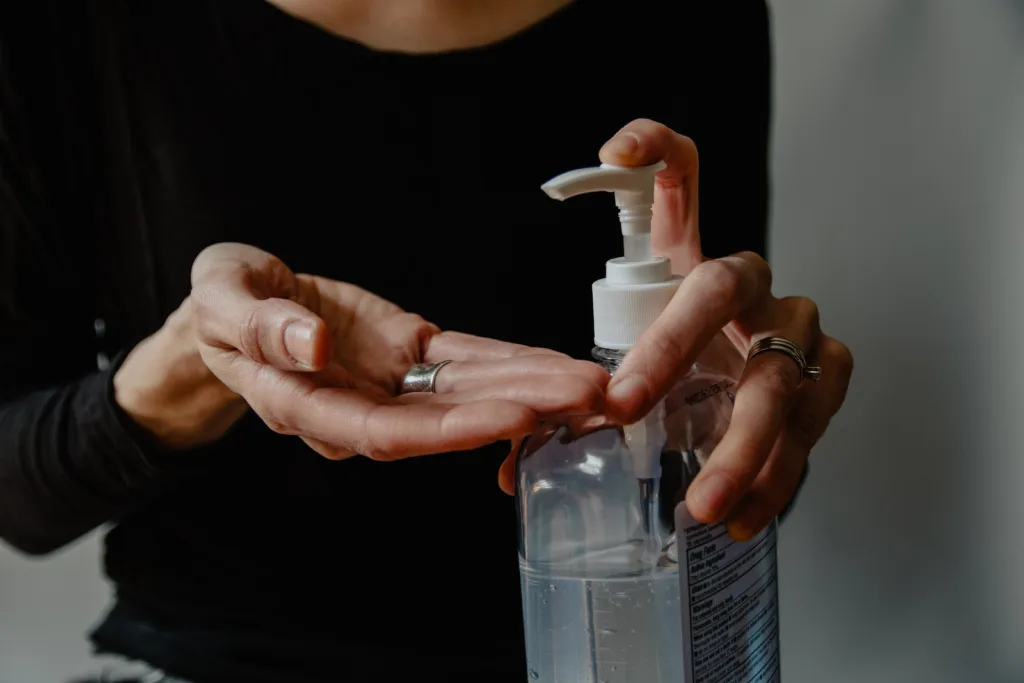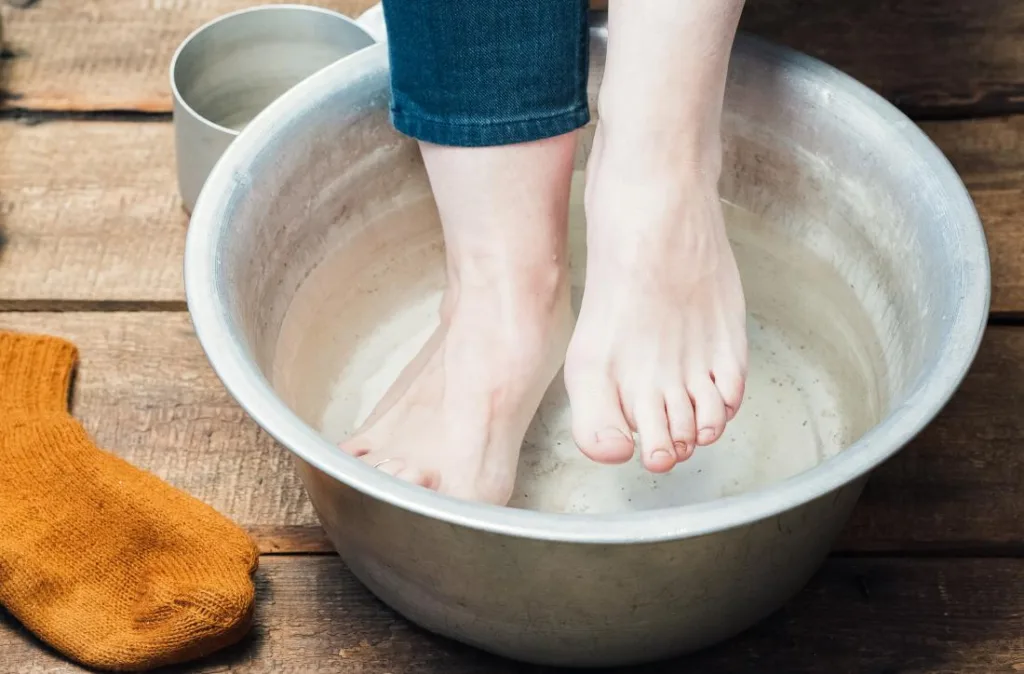Fungal infections can be a nuisance, causing discomfort and sometimes even health complications. Fortunately, there are various antifungal treatments available to combat these infections. One such treatment is the use of alcohol, specifically isopropyl alcohol and ethanol. In this blog post, we will explore whether alcohol kills fungus and how it can be used as an antifungal agent.
Firstly, let’s understand what alcohol is and how it works. Alcohol is a chemical compound that is highly effective in killing microorganisms such as bacteria, fungi, and viruses. It does this by disrupting the cell membrane of the microbe, which leads to cell death. However, not all alcohol is created equal when it comes to its antifungal properties.
Isopropyl alcohol, also known as rubbing alcohol, is commonly used as an antiseptic and disinfectant. It has a rapid killing effect on bacteria and viruses, but its effectiveness against fungus is limited. While it can kill some types of fungi, it is not effective against all types, especially those that form spores.
On the other hand, ethanol, also known as ethyl alcohol, is more effective against fungus than isopropyl alcohol. It has been used as an antifungal treatment for paper conservation, and studies have shown that it can significantly inactivate fungal spores. However, higher concentrations of ethanol are required to kill fungal spores than bacteria, which show a maximum kill efficacy of 70% ethanol.
So, does alcohol kill fungus? The answer is yes, but its effectiveness depends on the type of alcohol and the type of fungus. Isopropyl alcohol is more effective against bacteria and viruses than against fungus, while ethanol is more effective against fungus. However, higher concentrations of ethanol are required to kill fungal spores than bacteria.
In terms of using alcohol as an antifungal agent, it is important to note that regular application is necessary to eliminate surface infections. It is also important to use the appropriate concentration of alcohol for the type of fungus beig treated. For example, a higher concentration of ethanol may be required for fungal spores than for surface fungal infections.
Alcohol can be effective in killing fungus, but its effectiveness depends on the type of alcohol and the type of fungus. Isopropyl alcohol is more effective against bacteria and viruses than against fungus, while ethanol is more effective against fungus. Regular application and appropriate concentration are necessary for successful treatment of fungal infections.
Can 70% Alcohol Kill Fungus?
Yes, 70% isopropyl alcohol can kill fungus. The alcohol works by denaturing the proteins within the fungal cells, leading to their destruction. Additionally, the alcohol also dissolves the lipids within the cell membranes, further contributing to the destruction of the fungus. However, it is important to note that not all types of fungus are susceptible to alcohol, and some may require stronger antifungal treatments. Furthermore, it is important to use the alcohol correctly and ensure that it is applied thoroughly to the affected area in order to achieve optimal results.

The Effectiveness of Alcohol as an Antifungal
Yes, alcohol can be used as an antifungal agent. Ethanol, which is commonly used in paper conservation, has been found to be effective against a variety of fungal species. It works by disrupting the cell membrane of the fungus, which leads to its death. However, the effectiveness of ethanol as an antifungal treatment can vary depending on factors such as concentration, exposure time, and the type of fungus being treated. It is important to note that while ethanol can be effective in the short-term, its long-term effects on paper and other materials are still being studied.
Can Alcohol Eliminate Fungal Spores?
Yes, alcohol can kill fungal spores. However, higher concentrations of alcohol are required to kill fungal spores compared to bacteria. Studies have shown that bacteria show a maximum kill efficacy of 70% ethanol, wile fungal spores require higher concentrations. In one study, ethanol was found to significantly inactivate fungal spores such as Penicillium chrysogenum and Aspergillus niger. It is important to note that the effectiveness of alcohol as a fungicide can vary depending on the type of fungus and the concentration and duration of exposure. Overall, alcohol can be an effective tool in controlling fungal growth, but it may not be the best solution for all situations.
The Effectiveness of Rubbing Alcohol as an Antifungal Treatment
Rubbing alcohol, also known as isopropyl alcohol, has been found to be effective in killing germs, bacteria, and fungi. As such, it can be used as an antifungal agent to treat skin infections caused by fungi. Rubbing alcohol works by breaking down the cell wall of the fungus, wich ultimately kills it.
To use rubbing alcohol for antifungal purposes, simply apply it directly to the affected area using a cotton ball or swab. It is important to note that rubbing alcohol should not be used on open wounds or broken skin, as it can cause further irritation and delay the healing process.
While rubbing alcohol can be effective in treating fungal infections, it should not be used as the sole treatment for severe or persistent infections. In such cases, it is best to consult a healthcare professional for proper diagnosis and treatment.
Which Is Better for Treating Fungus: Peroxide or Alcohol?
Both rubbing alcohol and hydrogen peroxide have antifungal properties, but they may not be equally effective for treating all types of fungal infections. In general, hydrogen peroxide is considered more effective against fungal infections than rubbing alcohol due to its ability to penetrate the fungal cell wall and disrupt its growth and metabolism. However, the effectiveness of hydrogen peroxide may vary depending on the type of fungus and the severity of the infection.
Rubbing alcohol, on the other hand, is more commonly used as a disinfectant for surfaces and skin, and may not be as effective against certain types of fungi. Additionally, prolonged use of rubbing alcohol on skin can cuse dryness and irritation.
It’s important to note that both hydrogen peroxide and rubbing alcohol should be used under the guidance of a healthcare professional for treating fungal infections. Over-the-counter antifungal medications and prescription treatments may be more effective and less damaging to the skin than home remedies.

Does 91% Alcohol Effectively Kill Fungus?
While alcohol, particularly isopropyl alcohol, can be effective in killing some types of fungus, the concentration of the alcohol is an important factor to consider. In the case of 91% isopropyl alcohol, it may not be as effective as a lower concentration, such as 70%, in killing off fungal spores. This is because a higher concentration of alcohol may take longer to penetrate the cell walls of the fungus and may not be as effective in killing it. Additionally, some types of fungus may be more resistant to alcohol than others, making it important to seek medical treatment if you suspect you have a fungal infection. Overall, while 91% isopropyl alcohol may have some effectiveness in killing some types of fungus, it is not always the best solution and proper medical treatment shoud be sought in cases of fungal infections.
The Effects of Alcohol on Fungal Infections
Yes, alcohol can make fungal infections worse, including those caused by the Candida fungus. This is because alcohol weakens the immune system, wich is responsible for keeping fungal cells in check. When the immune system is weakened, fungal cells can quickly multiply and spread, leading to more severe symptoms and a longer recovery time. Research studies have shown that just two hours after consuming alcohol, white blood cell levels, which are crucial for fighting infections, are significantly reduced, leaving the body more vulnerable to fungal infections. Therefore, it is advisable to limit alcohol consumption or avoid it altogether when dealing with a fungal infection.
The Effects of Alcohol on Fungal Infections
70% ethyl alcohol is antifungal. This has been demonstrated through cultural tests on clinical material from 809 cases of proven or suspected dermatomycosis. Therefore, if you are looking for an alcohol with antifungal properties, 70% ethyl alcohol would be a good option to consider.
Can Alcohol Be Used to Treat Foot Fungus?
Yes, you can use alcohol to treat foot fungus. Rubbing alcohol, also known as isopropyl alcohol, can help kill the fungus that is on the surface of the skin. You can apply it directly to the affected area by using a cotton ball or swab, or you could soak your feet in a footbath that’s made up of 70 percent rubbing alcohol and 30 percent water for aout 30 minutes. This will help to kill the fungus and prevent it from spreading. However, it’s important to note that using alcohol alone may not be enough to completely eliminate foot fungus, and it’s recommended that you also use other anti-fungal treatments for best results. It’s also important to consult with a doctor if you have persistent foot fungus or if you have any underlying health conditions that may make it difficult to treat.

Does Hand Sanitizer Kill Fungal Infections?
Yes, alcohol-based hand sanitizers can kill most types of fungi, including those that cause common infections like ringworm and athlete’s foot. The active ingredient in hand sanitizers is usually ethyl alcohol or isopropyl alcohol, which works by denaturing the proteins in the cells of bacteria, viruses, and fungi, causing them to break down and die. However, it is important to note that hand sanitizers may not be effective aginst all types of fungi, and they may not be as effective as other antifungal treatments, such as prescription medications. If you suspect you have a fungal infection, it is best to consult with a healthcare provider for proper diagnosis and treatment.
Does Alcohol Promote Fungal Growth?
Yes, some types of fungus can grow in alcohol, particularly in fermented beverages and distilled spirits that contain ethanol. These fungi are known as ethanol-tolerant fungi or ethanol-producing fungi, and they thrive in environments where fermentation occurs, such as bakeries, breweries, and distilleries. In fact, some of these fungi are even intentionally added to certain alcoholic beverages, such as sour beers and some types of wine, to give them a unique flavor and aroma. However, it’s important to note that not all types of fungi can survive in alcohol, and excessive growth of certain types of fungi in alcoholic beverages can lead to spoilage and contamination, whih can make the beverage unsafe to consume.
Does Hydrogen Peroxide Kill Fungus?
Yes, hydrogen peroxide has been shown to effectively kill fungi. This is because hydrogen peroxide is a potent oxidizing agent that can break down the cell walls of fungi and disrupt their metabolic processes. This makes it an effective antifungal agent that can be used to treat a variety of fungal infections, including athlete’s foot, nail fungus, and ringworm. In fact, hydrogen peroxide is often used as a natural remedy for these types of infections because it is relativey safe and inexpensive. However, it is important to note that hydrogen peroxide should always be used as directed and under the guidance of a healthcare professional to avoid any potential side effects or complications.
The Antifungal Properties of Vinegar
Yes, vinegar has been found to have antifungal properties. Studies have shown that acetic acid, the main active ingredient in vinegar, can inhibit the growth of various fungal species, including Candida albicans, Aspergillus niger, and Trichophyton mentagrophytes. Acetic acid disrupts the cell membranes of fungi, leading to ther death. Additionally, vinegar’s low pH can create an unfavorable environment for fungal growth. Therefore, vinegar can be used as a natural and effective antifungal agent for various purposes, such as treating fungal infections, preventing mold growth, and preserving food. However, it is important to note that the concentration and type of vinegar used may affect its antifungal activity.

The Effectiveness of Hydrogen Peroxide in Treating Athlete’s Foot
Yes, hydrogen peroxide can effectively cure athlete’s foot. Athlete’s foot is a fungal infection that can cause itching, burning, and scaling of the affected area. Hydrogen peroxide is known for its antifungal and antibacterial properties, which makes it an effective treatment for athlete’s foot. When applied to the affected area, hydrogen peroxide penetrates the skin and kills the fungus that causs the infection. It can also eliminate any bacteria that may be present on the skin and contribute to the infection. To use hydrogen peroxide for athlete’s foot, simply apply it to the affected area twice a day until the infection is gone. It is important to note that while hydrogen peroxide is a safe and effective treatment for most people, it may cause skin irritation in some individuals. If you experience any redness, itching, or other signs of irritation, discontinue use and consult a healthcare professional.
The Effects of Applying Alcohol on Ringworm
Ringworm is a fungal infection that commonly affects the skin, scalp, and nails. While rubbing alcohol can be effective at killing ringworm on the surface of the skin, it is not recommended as a treatment for ringworm. This is because the fungal infection typically lives deep beneath the skin’s surface, which means that applying rubbing alcohol to the affected skin may not effectively kill the fungus.
However, rubbing alcohol can be useful in preventing the spread of ringworm. This is because the fungus that causes ringworm can survive on surfaces such as towels, clothing, and bedding. By usng rubbing alcohol to disinfect these surfaces, you can prevent the spread of the infection to others.
If you suspect that you have ringworm, it’s important to see a healthcare provider for diagnosis and treatment. Antifungal medications are typically prescribed to treat ringworm, which can be applied topically or taken orally. These medications are much more effective at killing the fungus and treating the infection than rubbing alcohol.
Conclusion
In conclusion, alcohol has been found to be an effective antifungal agent. Both isopropyl alcohol and ethanol have been shown to denature proteins and dissolve lipids in fungi, thereby killing them. However, the efficacy of alcohol as an antifungal agent varies depending on the concentration and type of alcohol used. Higher concentrations of alcohol are required to kill fungal spores than bacteria. Regular application of alcohol can help eliminate surface infections caused by fungi. Therefore, alcohol can be considered as an effective and viable option for treating fungal infections. However, it is important to note that alcohol may not be effective againt all types of fungi, and in some cases, other antifungal treatments may be necessary.
